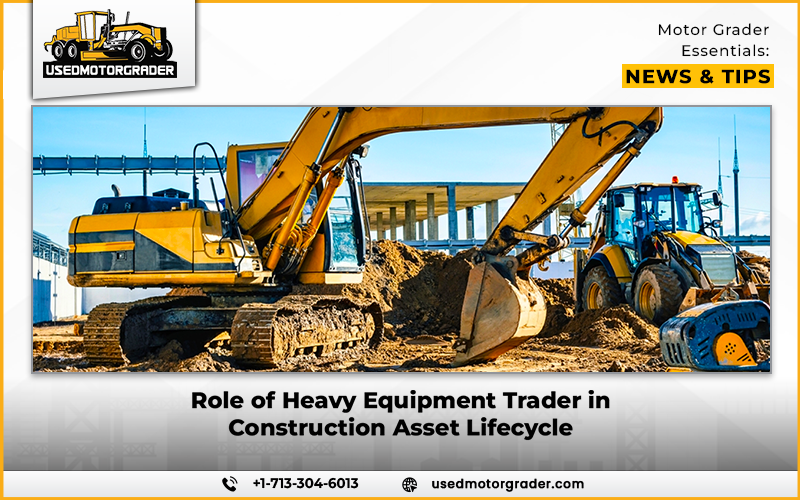Beyond Buying and Selling
When people hear ‘heavy equipment trader,’ they usually imagine someone arranging a transaction by pairing a buyer with a machine and then looking for the next deal. Actually, a skilled equipment trader has to be more strategic and play a bigger part. Traders are usually involved in every stage of a construction asset’s life. From the first sale to the point of salvage. These factors shape such decisions to determine how productive the machine is, its value, and how it can be changed or disposed of. They learn more than just pricing; they also address maintenance, product application, market trends, and operational planning.
Guiding First-Time Buyers Toward Smarter Assets
Making the first or additional purchase for a fleet can shape a contractor’s business for many years ahead. Many times, equipment traders are brought in to explain why the overall value of a machine should guide a buyer’s decision, not the listed price alone. They understand which machines generally keep their value, which ones are known for costly fixes, and which are easily used for different job types. For buyers who want to get the best value, this kind of insight is very important. Traders aim to interest buyers in models they believe will be in demand in the future, which raises the chance of a good resale.
Setting the Resale Tone with Maintenance and Record Expectations
The resale value of a machine depends on everything that happens after the buyer purchases it. Heavy Equipment trader professionals are aware of this, and experienced ones will make sure owners are aware of keeping up with maintenance and keeping good records. They point out that service logs, frequent checks, and key upgrades. This make machines appeal more to potential buyers when sellers sell them.
Repurposing Older Units for New Jobsite Applications
Just because a machine is no longer at its best does not mean someone must sell or discard it. Equipment traders often realize first that they can modify or move a unit to a different job. A worn-out grader for earthmoving may still help with snow removal or light grading jobs on private property. Traders recognize the capabilities and issues with used equipment. They usually assist people in finding new ways to use what they have. Recycling equipment saves money and allows the asset to be useful for a longer period.
Connecting Buyers with Refurbishment and Upgrade Options
In some cases, the best thing for a machine is a thorough refurbishment. Heavy equipment trader experts often help connect the current user to those who can restore the equipment, ensure better emissions, or include updated technology such as GPS control. They can make the machine last longer and be more attractive to buyers. A number of traders recondition their vehicles, giving customers upgrade packages and warranty options. Because of this, buyers can trust their purchases, and used equipment can stand up to the latest models in the industry.
Influencing End-of-Life Decisions and Salvage Value
Sooner or later, the cost of fixing a machine becomes greater than the work it can still do. In such circumstances, equipment traders help owners find the best way to handle the end of their machines. A trader may instead recommend taking a unit apart or finding someone who wants the main parts. They have the resources to check if repairing the machine is a good idea or if trading it in gives you better value. Traders can decide whether to keep using a machine or if breaking it down for scrap is the best choice.
Helping Contractors Align Equipment Choices with Financial Strategies
A machine’s lifespan also includes financial factors. It is typical for equipment traders to cooperate with contractors. This ensures decisions about assets fit with the company’s overall strategy. You need to compare the advantages and disadvantages of owning versus renting. Selling a property quickly versus keeping it for a long period, and deciding when to move on based on how quickly the property loses value or other tax considerations. The proper advice allows contractors to buy and sell equipment at the best times. This ensures they do not keep machines that are not performing well. A trader’s input here can influence how teams create budgets, bids, and project schedules.
Shaping the Used Equipment Market and Supply Chain Stability
Equipment traders influence more than just the individual users of equipment. How they buy and sell used equipment affects the well-being of the market for used machines. They determine the number of models that they will sell, how quickly machines reach their end of life, and how smoothly the supply chain operates in the region. Encouraging traders to refurbish or repurpose items helps cut down on new purchases and keeps things in stock at a steady level. In rapidly evolving fields such as construction, this dependable supply is very important for job site preparedness and future work.


